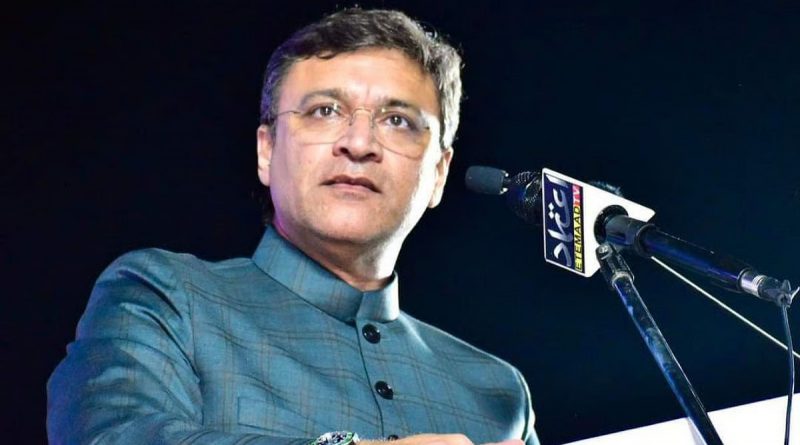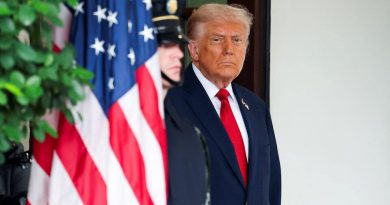OPINION: Weaponized Rhetoric in India—The Case of Akbaruddin Owaisi
Far from empowering Muslims, Akbaruddin’s rhetoric is downright foolish.
In the complex and often combustible landscape of Indian politics, few figures have stirred as much controversy as Akbaruddin Owaisi—the younger brother of Asaduddin Owaisi, head of the All India Majlis-e-Ittehadul Muslimeen (AIMIM), a Muslim-centric political party with influence in southern and parts of northern India.
Akbaruddin became a national—and international—talking point in 2012 when a provocative excerpt from one of his public speeches in Nirmal, Telangana, went viral. In the clip, he is seen declaring: “If the police are removed for 15 minutes, we are 250 million and you are 1 billion. We will show you who is more powerful, who has balls.”
The statement was a blatant threat wrapped in communal arithmetic, referencing the Muslim and Hindu populations of India. The crowd erupted in applause. Shortly afterward, Owaisi was arrested on charges of hate speech, released on bail, and ultimately acquitted in 2022.
But revisiting this case solely as a legal episode misses the point. It is a revealing lens into the enduring toxicity of communal rhetoric in Indian politics—particularly within some segments of the Muslim leadership—where hate is no longer an outlier but a weaponized tool, used across the spectrum to polarize and provoke.
Hate Speech Is Not a One-Way Street
Akbaruddin’s speech stands as one of the clearest examples of hate speech by a Muslim politician in India. It was not vague or symbolic rhetoric aimed at resisting “Muslim oppression,” but a direct provocation against an entire (albeit imaginary) community—articulated through communal arithmetic: 25 crore versus 100 crore.
Ironically, the speech played right into the hands of those it ostensibly opposed. It gave the Hindu Right a moral and political tool: “If Muslim leaders can openly threaten us, why shouldn’t we respond in kind?” In that sense, Owaisi’s speech, like many instances where the idea of Muslim empowerment morphs into rabid communalism, deepened the communal fissures that the ruling dispensation now capitalizes on with its own stream of hate speeches.
Yet, here lies a deeper hypocrisy within sections of the Indian Muslim community. Many Muslims, in private conversations, while disagreeing with AIMIM’s political opportunism, tend to justify Akbaruddin’s words as a symbolic show of resistance—an assertion that “we will not take oppression lying down.” But symbolic resistance through hate speech is a double-edged sword. It only reinforces existing suspicions and increases hostility.
The Dangerous Myth of Communal Arithmetic
The core of Akbaruddin’s speech rests on a fundamentally flawed idea: that Muslims are a monolithic, homogeneous bloc of 25–30 crore standing against 100 crore Hindus.
Nothing could be further from the truth. The Muslim community in India is deeply diverse and internally fractured—across sects, castes, regions, and languages.
Sunni–Shia, Deobandi–Barelvi, and Ashraf–Ajlaf–Arzal divisions are an open secret. The imagined “25 crore Muslims” myth collapses the moment these internal differences are acknowledged—which, in the age of Hindutva, seems conveniently forgotten.
Likewise, the notion of “100 crore Hindus” is equally imaginary. Caste, regional, and linguistic divides among Hindus remain sharp and visible, only temporarily papered over by the Hindutva project. Communalism gives life to these mythical numbers because communal politics thrives on binaries—usually imaginary, always forced.
When Akbaruddin says “15 minutes without police,” he frames the state—particularly the police—as the central oppressor during pogroms. There is some truth to this. The history of riots, from Nellie (1983) to Delhi (2020), shows police complicity or selective inaction. But his imagined scenario is suicidal. If the police disappear and the battle is framed as 30 crore versus 100 crore, it effectively calls for Muslims to engage in self-annihilation.
Three Hindus for every one Muslim—Owaisi’s way of calling for suicide reminds one of the now-famous meme: “Marwana ka tareeqa thoda casual hai.”
Far from empowering Muslims, Akbaruddin’s rhetoric is downright foolish.
The Responsibility to Condemn Across the Board
Akbaruddin Owaisi has made many such remarks, including derogatory statements about Hindu gods—calling them “manhoos” (inauspicious). Imagine if any Hindu politician had used even mildly similar language for Allah or the Prophet—the reaction from Muslims and the media would have been explosive. This asymmetry in moral outrage is dangerous.
It is also telling that his elder brother, Asaduddin Owaisi—otherwise vocal in dissecting Hindu right-wing hate speech—has never meaningfully condemned his brother’s 2012 remarks. This selective silence undermines the moral standing of anyone claiming to fight hate.
If Muslims wish to oppose Hindutva hate speech with credibility, they must also hold their own leaders accountable. Tacit approval or silence emboldens hate-mongers from within, leaving ordinary Muslims to face the consequences of fires lit by their ‘leaders.’
Communalism Is a Two-Edged Sword
The truth is stark: speeches like Akbaruddin Owaisi’s do not protect Muslims. They further communalize Hindus, provide ammunition to the ruling party, and push India’s already fragile social fabric closer to collapse.
Muslims must therefore develop a politics rooted not in reaction, but in principled opposition to all forms of hate. That essentially means condemning both Hindu and Muslim hate speech—without excuses, without bias.
The flames of hate consume the weakest first. Those who light them rarely burn. Let us never forget: hate can never be fought with hate.
Disclaimer: Views expressed by writers in this section are their own and do not reflect Milli Chronicle’s point-of-view.



